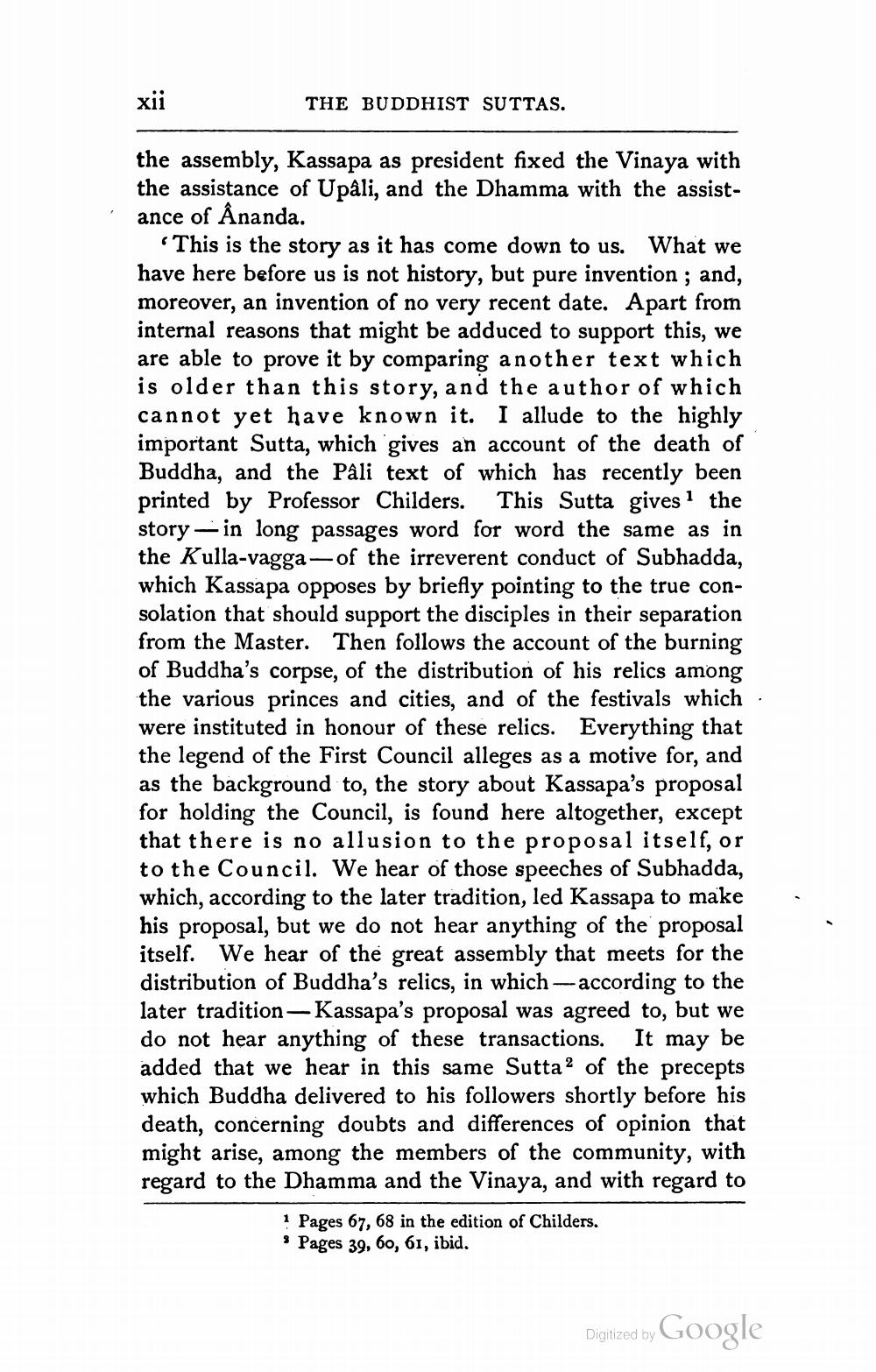________________
xii
THE BUDDHIST SUTTAS.
the assembly, Kassapa as president fixed the Vinaya with the assistance of Upåli, and the Dhamma with the assistance of Ânanda.
This is the story as it has come down to us. What we have here before us is not history, but pure invention; and, moreover, an invention of no very recent date. Apart from internal reasons that might be adduced to support this, we are able to prove it by comparing another text which is older than this story, and the author of which cannot yet have known it. I allude to the highly important Sutta, which gives an account of the death of Buddha, and the Pali text of which has recently been printed by Professor Childers. This Sutta gives 1 the story - in long passages word for word the same as in the Kulla-vagga- of the irreverent conduct of Subhadda, which Kassapa opposes by briefly pointing to the true consolation that should support the disciples in their separation from the Master. Then follows the account of the burning of Buddha's corpse, of the distribution of his relics among the various princes and cities, and of the festivals which were instituted in honour of these relics. Everything that the legend of the First Council alleges as a motive for, and as the background to, the story about Kassapa's proposal for holding the Council, is found here altogether, except that there is no allusion to the proposal itself, or to the Council. We hear of those speeches of Subhadda, which, according to the later tradition, led Kassapa to make his proposal, but we do not hear anything of the proposal itself. We hear of the great assembly that meets for the distribution of Buddha's relics, in which according to the later tradition - Kassapa's proposal was agreed to, but we do not hear anything of these transactions. It may be added that we hear in this same Sutta? of the precepts which Buddha delivered to his followers shortly before his death, concerning doubts and differences of opinion that might arise, among the members of the community, with regard to the Dhamma and the Vinaya, and with regard to
1 Pages 67, 68 in the edition of Childers. * Pages 39, 60, 61, ibid.
Digitized by Google




